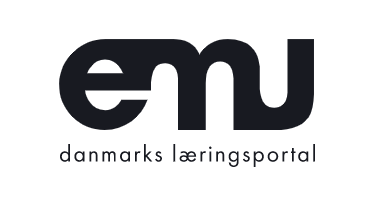Short summary:
'Technology Understanding' (Teknologiforstaelse) a.k.a. Informatics is a three-year pilot programme of the Danish ministry of Children and Education focused on introducing a 'Technology Understanding' as a new subject in primary and lower secondary education (age 6-16, ISCED level 1 and 2). The new Informatics subject is divided into four interconnected 'areas of competence' (see below). The three-year (2018-2021) pilot will test the introduction of the new subject in two different configurations (as a stand-alone subject and integrated into existing subjects) in around 5% of Danish schools, after which the results of the pilot will be evaluated.
Description and objectives:
‘Technology Understanding’ (Teknologiforstaelse) a.k.a. Informatics is a three-year pilot programme focused on introducing Informatics as a new subject in primary and lower secondary education (age: 6-16). The goal of this new subject is to develop the critical ability of students to (responsibly) use and shape technology, rather than just consuming it. In the pilot-phase the subject is tested both as an independent subject and as a ‘professionalism’ (integrated in multiple existing subjects including social studies, language and visual arts).
The pilot programme and its implementation is coordinated by the Danish ministry for Children and Education. The content of the subject has been prepared by an advisory expert group of around 20 scholars from universities, University Colleges, and ministry learning consultants as well as school teachers.
The ojectives of the subject itself are to develop the students ability to (responsibly) use and shape technology. To achieve this the work done by students in the context of the subject focuses on four interrelated areas of competence:
- Digital empowerment: the ability to critically examine how technology is imbued with values and intentions, and how it shapes our lives as individuals, groups and as a society.
- Digital design and design processes: the ability to incrementally design digital artefacts with respect to the context of future use
- Computational thinking: the ability to analyse, model and structure data and data processes
- Technological competences: knowledge about principled function of computer systems, networks, security, privacy and programming skills
A short video explaining each of the competence areas and related activities can be found via the link above.
The objective of the three year pilot-phase is to test the new Informatics subject in two configurations (as a stand-alone subject and through integration in other subjects).
Link to programme website:
Organisation:
Ministry of Children and Education
Impact:
The results of the pilot programme (each of the two configurations) will be evaluated after school year 2020-2021. If deemed successful, a political decision will be made regarding the system-wide introduction of the new subject in primary and lower secondary education.
Reach:
46 primary and lower secondary schools (around 5% of total) participated in the pilot programme, evenly distributed in the two test groups (stand alone subject and integrated in other subjects). The total duration of the pilot was two and a half years. The Danish ministry of Children and Education has offered an extension of of the experimental approval until the school year 2022/23 to the 22 schools that participated in the test-group that introduced Technology Understanding (a.k.a. Informatics) as an independent subject. The goal of this extension is to safeguard and further develop the professional capacity and competencies developed in the pilot. The other test group (subject integrated in other topics) are also allowed to continue, as this approach is not dependent on ministry approval.
Budget and funding model:
The pilot programme is funded and implemented by the Danish ministry for Children and Education
data_page_highlighted_yes_no:
data_page_summary:
'Technology Understanding' (Teknologiforstaelse) is a three-year pilot programme of the Danish ministry of Children and Education focused on introducing a 'Technology Understanding' as a new subject in primary and lower secondary education (age 6-16). Divided into four interconnected 'areas of competence', the new subject covers everything from responsible use of digital media to programming skills.
data_page_impact:
The three-year (2018-2021) pilot will test the introduction of Technology Understanding in two different configurations (stand-alone subject and integrated into existing subjects) in around 5% of Danish schools, after which the results of the pilot will be evaluated.
data_page_icon_programme:






